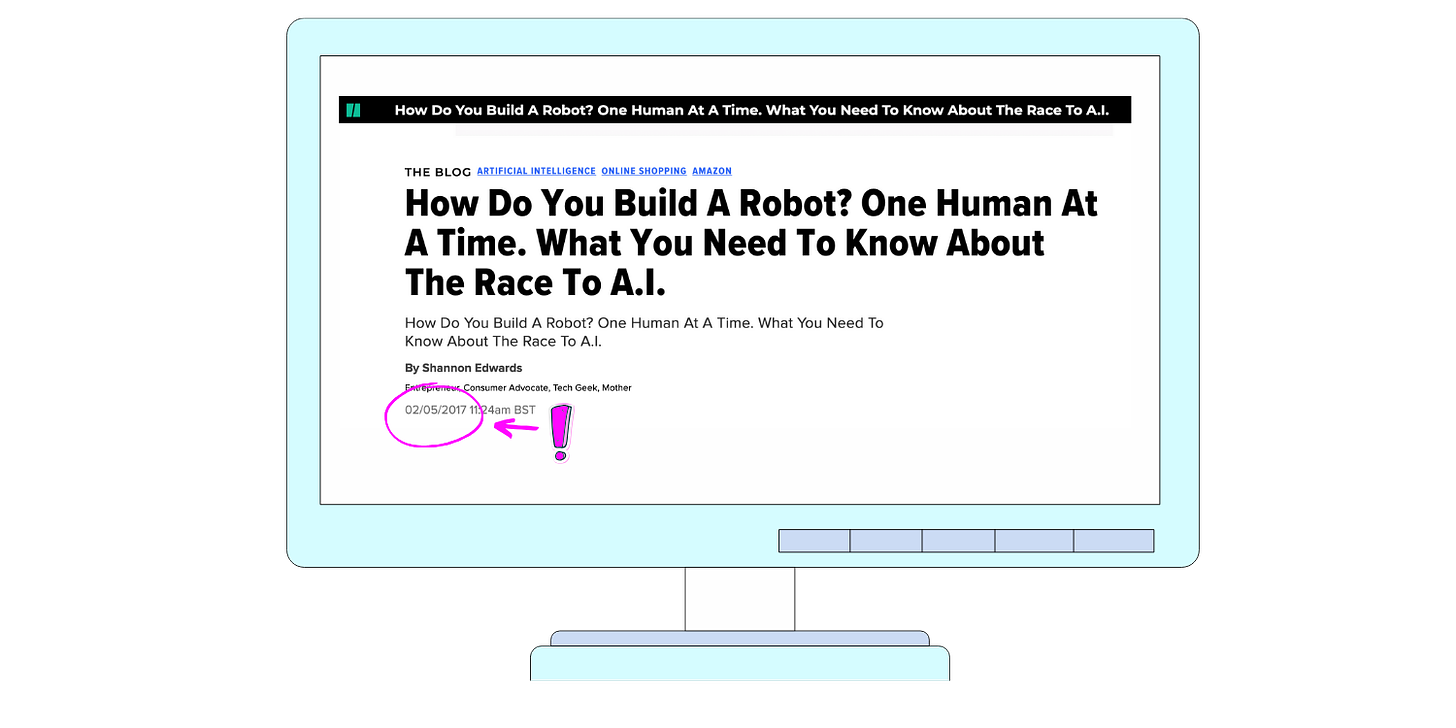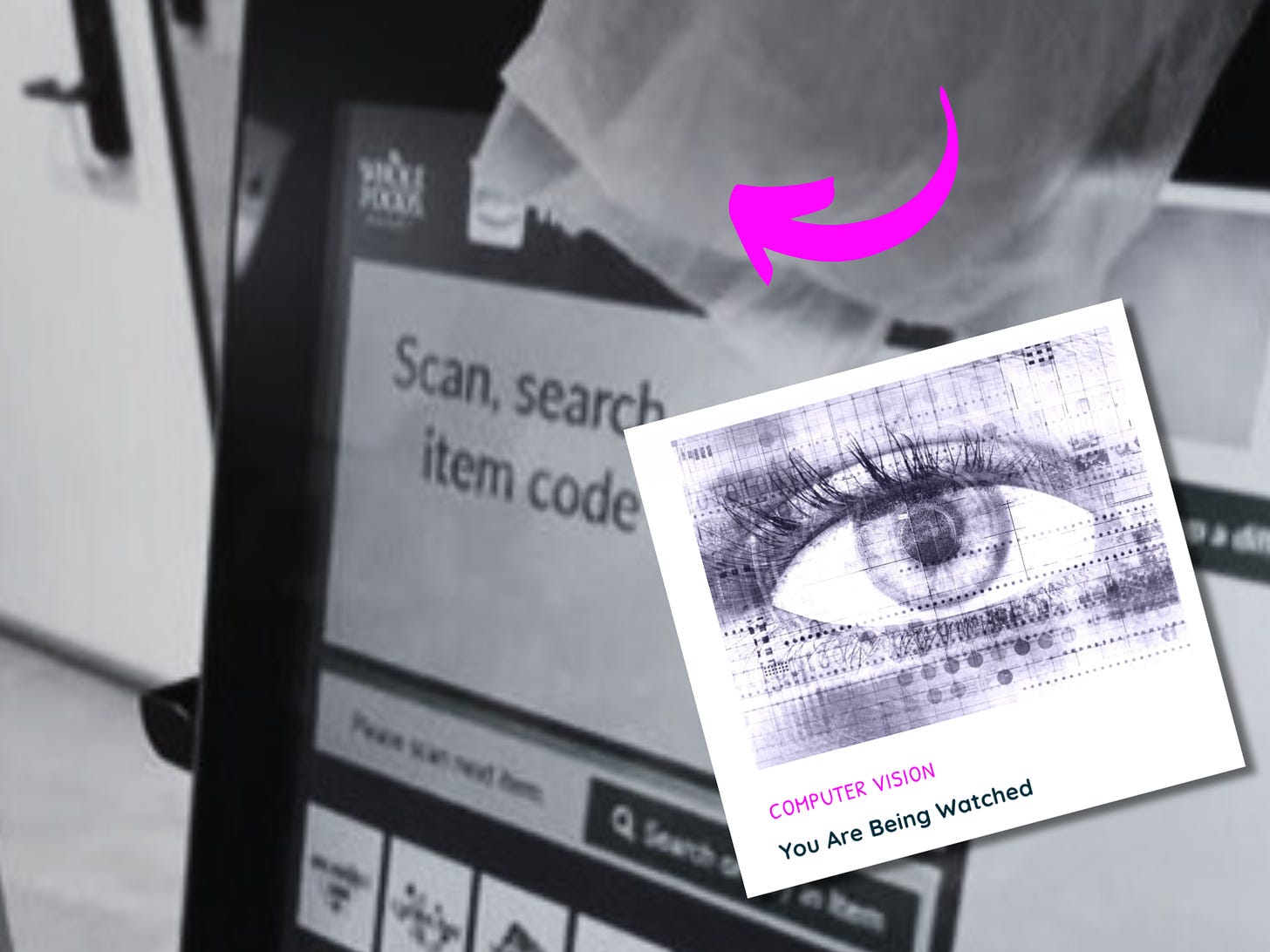Whole Foods/Amazon, Humanoids & More
#NEWSLETTER | The race to dominate AI is predicated upon securing an unimaginable volume of data to "train" applications making a trip to the grocery store not just about buying fruit anymore...
There has been a lot of moldy, high-priced fare at my local Whole Foods store recently. What gives? Could it be that Amazon is less interested in serving us fresh produce than it is in “farming” our rich and complex data? Well, yes, it’s more than possible. The race to AI has meant all hands on deck (literally… an Amazon One joke there for you) and creative minds working overtime to come up with new ways to extract data from us all.
More on that below, as well as my fun chat with Deb Fillman, who hosts “The Reason We Learn” on YouTube, about Google, AI in schools, and how to think critically about the answers we receive from AI chatbots.
Google Showed its Cards
There was much to do last week about Google and its off kilter chatbot responses. But as I told Deb on the show, these AI hiccups at Google are an excellent illustration of how generative AI tools are programmed. Because while the answers produced were “off,” the methodology that generated those responses was not. What we must understand is the nuanced and sociological work which occurs before the “science” even begins. So we must ask ourselves if Google (and other tech companies) have the right teams in place to take on this type of task.
Here Come the Robots 🤖
Deb and I also touched on one of my favorite subjects: robots. I guess perhaps the proper term is really “humanoids” (I’ve often said, only partly tongue-in-cheek, that we should expect the “robot rights are human rights” movement to start someday soon).
Speaking again of Amazon… founder Jeff Bezos joined OpenAI (ChatGPT parent company), Microsoft, Intel and chip company Nvidia in an investment round last week for humanoid company “Figure.”
And here is something that makes me particularly optimistic: you are all thinking right now, “duh, of course, robots are next.” So it’s a great time to shift these conversations from sci-fi to dinner table chat and consider the implications. And since I’ve been thinking and talking about AI and robots for at least a decade now, I’m really glad you’ll stop side-eyeing me and dive in to discuss.
Back to Whole Foods…
You only need look at Amazon’s business portfolio (Wholefoods, Ring, Roomba, One Medical are just a few of the 100 Amazon subsidiaries) and the details of its robust enterprise businesses to understand that they are less interested in arugula than how you interact with arugula.
It’s also why I have chosen to cover up the camera when I check out at Whole Foods stores and why we should all think twice about what video footage is captured of our day-to-day lives. Some things we can’t control, but you’d be surprised how much you can affect with, say, even simple permission changes on your phone.
Knowledge is Power
It’s not about “what” you should think, but “how” you should think about your data and privacy right now. Just simply understanding its power and the part data plays in building a new future should give you permission to pause and think twice about the exchange you are making with businesses.
Until next week!






